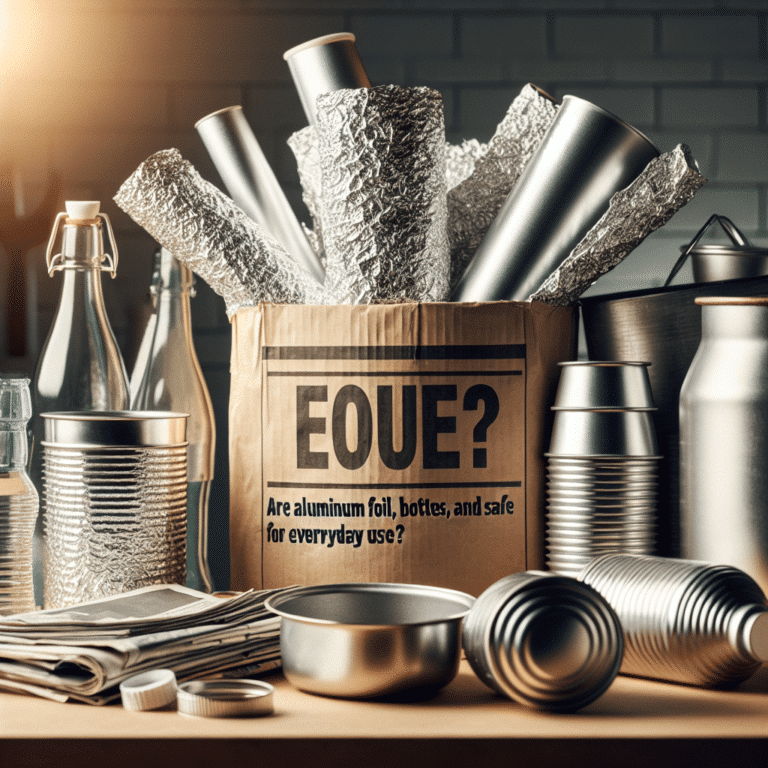Summary
- DNA damage is assessed in users of aluminum cookware, with concerns about aluminum toxicity for humans.
- Occupationally exposed individuals suffer from oxidative stress and DNA damage due to aluminum exposure.
- Studies suggest that aluminum cookware can lead to high levels of aluminum in the bloodstream, causing free radical damage and compromised antioxidant capacity.
- Consuming acidic foods cooked or stored in aluminum cookware can leach out more aluminum and potentially cause DNA damage.
- Safety authorities recommend avoiding the use of aluminum pots and dishes for acidic foods and suggest caution when using aluminum foil.
A recent study has raised concerns about the possible health risks associated with using aluminum cookware. Researchers have found that individuals who frequently use aluminum pots, pans, and utensils may be at risk of increased levels of aluminum in their blood, leading to potential DNA damage and oxidative stress.
The study, published in a reputable medical journal, compared the blood samples of individuals who used aluminum cookware daily with those who did not. The results showed that aluminum users had significantly higher levels of aluminum in their blood, along with more free radical damage to their body fats and proteins. Additionally, the total antioxidant capacity of their bloodstream was compromised, resulting in more DNA damage.
Researchers highlighted that most of our aluminum exposure comes from processed junk food containing aluminum additives. However, about 20 percent of daily aluminum intake may come from aluminum cooking utensils such as pans, pots, kettles, and trays.
The researchers also pointed out that individuals who used aluminum cookware daily to cook and store acidic foods like yogurt and tomato sauce were at a higher risk of aluminum leaching into their food. Even using aluminum camping dishes for just one week could exceed the tolerable weekly intake guidelines, especially for children.
In light of these findings, safety authorities recommend avoiding the use of aluminum pots or dishes for acidic or salted foodstuffs to prevent unnecessary aluminum ingestion. This precaution applies to items like apple sauce, rhubarb, tomato puree, and salted herring.
When it comes to aluminum foil, wrapping and baking food in aluminum foil is a common practice, but concerns have been raised about the potential health risks associated with this practice. While small amounts of aluminum may leak into food from the foil, the issue is more pronounced for small children or individuals with reduced kidney function.
Furthermore, storing food wrapped in aluminum foil in contact with certain types of metal, such as stainless steel, can lead to increased food aluminum concentrations. This setup acts as a battery and can significantly raise the levels of aluminum in the food.
Experts advise caution when using aluminum drinking bottles, as children drinking beverages from them regularly could exceed the tolerable aluminum exposure limit. Safety authorities suggest minimizing the use of aluminum cookware and utensils to reduce the risk of aluminum exposure.
In conclusion, while aluminum cookware is commonly used in households, it is essential to be mindful of the potential health risks associated with its use. By following safety guidelines and minimizing exposure to aluminum through cookware and utensils, individuals can protect themselves from potential harm.
This study sheds light on the importance of considering the materials used in cooking and food storage to safeguard health and well-being.
For more information on this topic and related health news, stay tuned for future updates and articles on cookware safety and health recommendations.
Family Medicine, Public Health & Prevention, General Surgery


